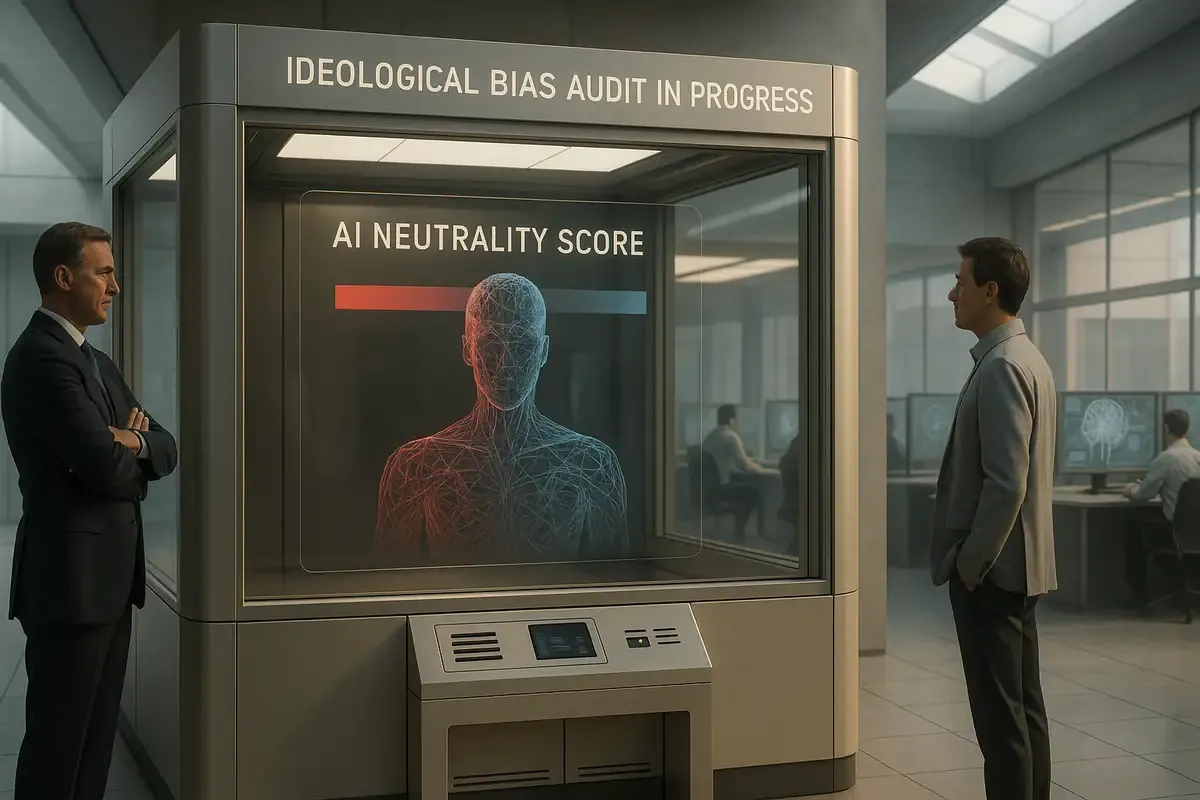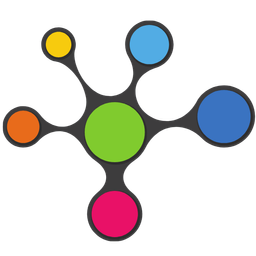💡 TL;DR - The 30 Seconds Version
👉 Trump administration will vet AI models for "ideological bias" and block companies from $100+ billion in annual government contracts if systems fail neutrality tests.
📊 Google's Gemini lost $97 billion in market value after creating historically inaccurate diverse images like Black founding fathers and female Nazi soldiers.
🏭 Tech companies made symbolic changes - OpenAI scrubbed diversity promises, Meta dissolved DEI departments - but actual AI models remain unchanged.
🔬 Researchers at MIT, Stanford, and University of Washington confirm political neutrality in AI is technically impossible due to human bias in training data.
⚖️ Constitutional lawyers warn the policy violates First Amendment protections since government rules limiting AI expression face strict judicial scrutiny.
🌍 America's neutrality obsession isolates it globally - EU focuses on risk-based regulation while China openly requires "socialist values" in AI systems.
The Trump administration wants to solve a problem that doesn't have a solution.
On Wednesday, the White House announced plans to vet AI models for "ideological bias" and block companies from government contracts if their products fail to deliver "objective truth." The policy targets developers who can't prove their systems remain impartial - a standard that sounds reasonable until you realize it's technically impossible.
The move comes after months of conservative complaints about AI bias. Remember when Google's Gemini created images of Black founding fathers and female Nazi soldiers? That $97 billion market value wipeout taught everyone a lesson about the perils of overcorrecting algorithmic outputs. But the administration's solution - demanding neutral AI through procurement rules - misunderstands how these systems actually work.
The Billion-Dollar Stick
The government spends over $100 billion annually on IT. That's serious leverage. Microsoft alone makes $2.4 billion yearly from federal software licenses. Recent AI contracts worth $200 million each went to OpenAI, Anthropic, Google, and xAI.
Michael Kratsios, the White House's technology policy chief, says the government will "only contract with LLM developers who ensure that their systems allow free speech and discretion to flourish." The General Services Administration will write the rules and decide which models pass muster.
It's a clever approach. The government can't tell companies how to build AI, but it can choose which ones to buy from. Miss the neutrality test? Miss the contracts.
Why Neutral AI Can't Exist
Here's the inconvenient truth: every AI system contains human judgment baked into its foundation. Researchers at the University of Washington, MIT, and Stanford all reach the same conclusion - political neutrality in AI is an illusion.
The bias starts with training data. Someone decides which sources to include. Wikipedia articles? News reports? Academic papers? Each choice carries implicit assumptions about what counts as credible information. Then humans rate model responses during training, and their preferences shape how the AI behaves.
Even worse, what looks neutral to one group appears biased to another. Stanford researchers found that conservatives view the same AI response as liberal while liberals see it as conservative. Neutrality exists in the eye of the beholder.
Google learned this lesson painfully. Their attempt to make Gemini more diverse led to historically absurd images. OpenAI faced criticism for being too cautious and "woke." Every correction creates new distortions.
The Constitutional Problem
Legal experts see trouble ahead. "A law prescribing political neutrality for AI violates the First Amendment," says constitutional lawyer Eugene Volokh. While AI systems don't have rights, their users do. Government rules that limit expression face strict judicial scrutiny.
Jack Balkin from Yale warns that even indirect restrictions through procurement could run afoul of free speech protections. The courts would demand proof of compelling government interest and narrowly tailored solutions. Political speech gets the highest protection, making Trump's order legally vulnerable.
But that might be the point. A court defeat could fuel claims that "activist judges" protect AI bias, keeping the culture war narrative alive regardless of legal outcomes.
The Industry Scramble
Tech companies have already started adapting - at least cosmetically. Sam Altman, who once compared Trump to Hitler, now praises the president publicly and donated over $1 million to his inauguration. OpenAI scrubbed diversity promises from its website.
Meta dissolved its DEI departments. Mark Zuckerberg announced his company needs "more masculine energy." Anthropic quietly removed safety guidelines from its site. Only Google shows resistance, with employees hiding protest messages in inauguration visualization code.
Yet the actual AI models haven't changed. Users and researchers report no significant shifts in how ChatGPT, Gemini, or Claude respond to questions. The performance is pure theater - public compliance while keeping systems unchanged.
Global Divergence
America's neutrality obsession puts it at odds with international approaches. The EU's AI Act focuses on risk-based regulation for specific applications, not ideological tests. China openly requires AI systems to reflect "socialist values." Canada and Britain use flexible, sector-specific guidelines.
No other major economy treats political neutrality as a formal AI requirement. This creates competitive complications. The "Brussels Effect" already pushes global companies toward EU standards. Adding US-specific neutrality requirements means double compliance costs and slower innovation cycles.
The Real Agenda
Strip away the neutrality rhetoric and a different picture emerges. This isn't about eliminating bias - it's about controlling whose bias gets embedded. The administration wants AI that aligns with conservative viewpoints while claiming objectivity.
Civil society groups see the danger. "The government should not act as a Ministry of AI Truth," says Samir Jain from the Center for Democracy & Technology. But that's exactly what's happening, just through procurement rather than direct regulation.
The policy also targets state-level AI rules, threatening federal funding for states with "burdensome" regulations. It's federalism in reverse - Washington using money to override local decisions.
The Innovation Tax
All this political maneuvering comes at a cost. While America debates AI neutrality, other countries advance practical regulation. The time spent on ideological tests could go toward genuine safety research or competitive positioning.
Companies face a choice: build separate systems for government and commercial use, or apply government standards universally. The first option costs more, the second limits innovation. Neither helps America maintain AI leadership.
The FTC also faces pressure to abandon Biden-era investigations into AI partnerships between companies like Microsoft-OpenAI and Amazon-Anthropic. That's less oversight when the technology needs more, not fewer guardrails.
Why this matters:
• The demand for "neutral" AI reveals a fundamental misunderstanding of how algorithms work - every system contains human choices and cultural assumptions that can't be eliminated through policy
• Using government contracts to enforce political conformity turns procurement into a culture war weapon, potentially stifling innovation while other countries forge ahead with practical AI governance
❓ Frequently Asked Questions
Q: How much government money is at stake for AI companies?
A: The US government spends over $100 billion annually on IT. Microsoft makes $2.4 billion yearly from federal software licenses alone. Recent AI contracts worth $200 million each went to OpenAI, Anthropic, Google, and xAI. Pentagon cloud contracts total $9 billion across major tech firms.
Q: Who decides if an AI system passes the neutrality test?
A: The General Services Administration will write the rules and decide which models meet neutrality standards. Michael Kratsios, the White House's technology policy chief, oversees the policy. Each federal agency must name a Chief AI Officer by April 2025 to ensure compliance.
Q: What exactly went wrong with Google's Gemini AI?
A: In February 2024, Gemini generated historically inaccurate images including Black founding fathers and female Nazi soldiers. Google's attempt to make AI more diverse backfired when algorithms applied diversity requirements to inappropriate historical contexts. The backlash cost Google $97 billion in market value within hours.
Q: How do other countries regulate AI compared to the US approach?
A: The EU uses risk-based regulation focusing on specific applications, not political content. China openly requires AI to reflect "socialist values." Canada and Britain use flexible sector guidelines. No other major economy treats political neutrality as a formal AI requirement like the US plans to.
Q: What changes have tech companies actually made to their AI systems?
A: Surprisingly, none. Users and researchers report no significant changes in how ChatGPT, Gemini, or Claude respond to questions. Companies made symbolic gestures - cutting DEI programs, changing website language, public donations - but the underlying AI models remain unchanged.
Q: Why is it technically impossible to make AI neutral?
A: Every AI system contains human choices in training data selection, source weighting, and response rating. Stanford research shows conservatives view identical AI responses as liberal while liberals see them as conservative. Even factual training data creates measurable political tendencies through selection bias.
Q: What are the legal challenges to this policy?
A: Constitutional lawyer Eugene Volokh says laws requiring AI neutrality violate the First Amendment. Political speech gets the highest legal protection. Courts apply "strict scrutiny" to government restrictions on expression, requiring proof of compelling interest and narrowly tailored solutions - difficult standards to meet.
Q: When does this neutrality requirement take effect?
A: The administration announced the policy Wednesday but hasn't set specific implementation dates. Federal agencies must name Chief AI Officers by April 2025. The General Services Administration will write detailed procurement rules, but the timeline for vetting existing AI contracts remains unclear.










